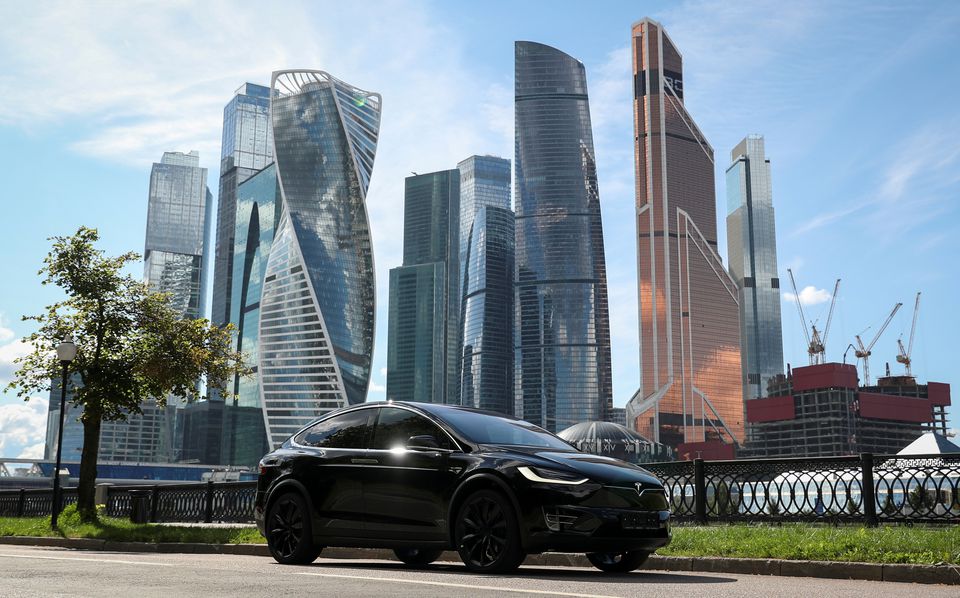WASHINGTON/SAN FRANCISCO, Feb 2 (Reuters) – U.S. safety regulators on Friday upgraded their probe into Tesla vehicles over power steering loss to the status of an engineering analysis – a required step before the agency could demand a recall.
Tesla shares, which dropped more than 25% in January alone, fell more than 3% on Friday.
The National Highway Traffic Safety Administration (NHTSA) said the investigation covered about 334,000 Model 3 and Model Y vehicles from the 2023 model year.
The agency’s upgraded probe follows a Reuters investigation that found tens of thousands of owners had experienced premature failuresof suspension or steering parts since 2016, citing Tesla documents and interviews with customers and former employees. The Tesla documents showed that the automaker sought to blame drivers for frequent failures of suspension and steering parts it has long known were defective.
Tesla did not respond to a request for comment on the NHTSA’s upgraded probe.
NHTSA, which had opened a preliminary evaluation in July into loss of steering control reports in 280,000 Tesla Model 3 and Y vehicles after 12 drivers reported problems, said it had now identified a total of 2,388 complaints. Some Tesla owners reported an inability to turn the steering wheel while others reported an increase in required effort.
NHTSA said it is aware of over 50 vehicles allegedly towed as a result of the condition.
It remained unclear exactly what parts might need recalling or replacing to prevent the steering outages. Tesla has addressed some other issues with remote software fixes.
The automaker could face a much more expensive recall if NHTSA requires repairs or replacements of physical parts.
Michael Brooks, executive director at the consumer advocacy group Center for Auto Safety, noted the agency had identified steering rack part numbers, suggesting it was examining possible hardware defects.
The high failure rates of the new models suggest that “there is a significant issue here,” Brooks said.
The agency usually upgrades safety probes into an engineering analysis, he said, as a way to pressure an automaker that is resisting a voluntary recall.
CRASH INSPECTION
The agency said it had linked one crash to the investigation in which a driver could not complete a right-hand turn at an intersection and struck a vehicle. Tesla and NHTSA jointly inspected the vehicle.
Some Tesla drivers told Reuters for its December report that they had experienced steering outages that nearly caused accidents.
“It was pretty terrifying,” said Jamie Minshall, who said he nearly went into a ditch after he felt the steering wheel on his 2023 Model Y jerk to the right. “It tried to kill me.”
Some drivers told NHTSA that the steering issues continued until the power-steering rack was replaced. NHTSA said the probe will examine the conditions leading to and resulting from the steering rack failures.
It can cost customers more than $2,000 to get a steering rack replaced for an out-of-warranty vehicle, according to customers’ invoices reviewed by Reuters.
Tesla has had nine recalls in the United States for steering and suspension issues since 2018, NHTSA records show. Most affected a relatively small number of vehicles.
The largest, in 2018, involved replacing steering-rack bolts on more than 70,000 Model S vehicles because of the risk that corrosion could cause a loss of power steering.
NHTSA’s move comes on the same day Tesla said it was recalling 2.2 million electric vehicles – nearly every one it has sold in the United States – because small font sizes on warning lights increased the risk of a crash. No crashes or injuries have been reported.
Tesla began releasing an over-the-air software update on Jan. 23, free of charge, to fix the issue. The software update will increase the font size of the visual warning indicators for the brake, park and antilock brake system (ABS).
Just two months ago, Tesla recalled 2.03 million vehicles in the United States to install new safeguards in its Autopilot advanced driver-assistance system. Consumer Reports has said that the new Tesla safeguards are insufficient.
NHTSA is currently reviewing whether the Autopilot recall is sufficient, Deputy Administrator Sophie Shulman told Reuters.
Tesla has been under scrutiny for its autonomous driving aid that is intended to enable cars to steer, accelerate and brake automatically within their lane.
Reporting by David Shepardson in Washington and Hyunjoo Jin in San Francisco, Shivani Tanna and Akash Sriram in Bengaluru; Editing by Savio D’Souza, Shinjini Ganguli, Chizu Nomiyama, Mark Porter, David Ljunggren and Nick Zieminski











